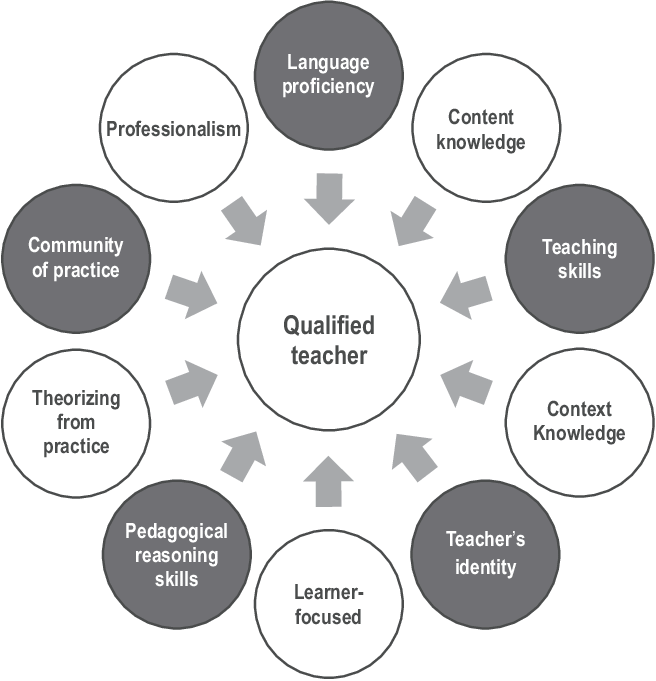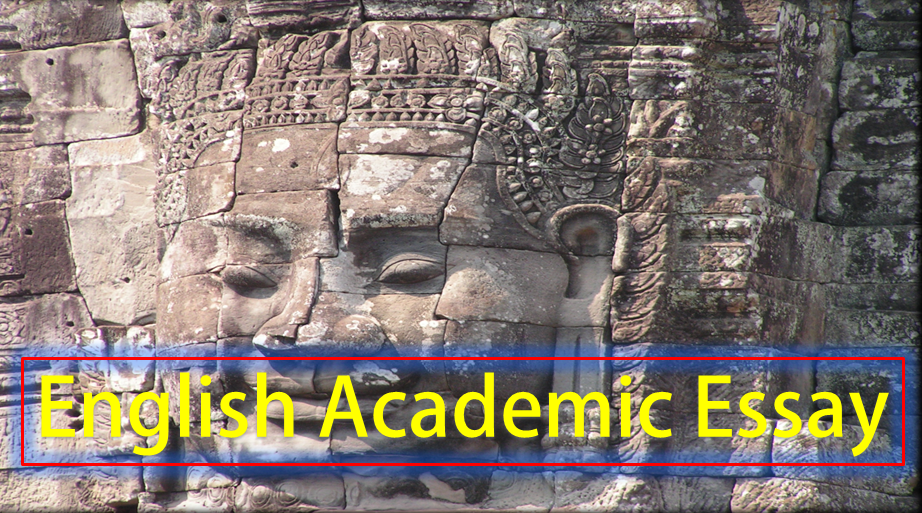Essay writing for NIE entrance exam_Exam date: October 01, 2017
Topic: “What should be the qualities of an effective 21″ century teacher?” Raise not more than three qualities of an effective 21″ century teacher, and explain each one with specific examples.
Sereyarth Em (2022, March 18)

Teachers are at the heart of education. Without them, the learning process comes to a standstill. This means the instructor plays a vital role in the school. He is not only responsible for imparting information but also for shaping the habits, qualities, and character of his students. He will attain educational goals by following the school’s curriculum. It seems like extremely hard work to be a teacher. If you want to become a qualified teacher in the twenty-first century, you will need even more qualities. However, three of those qualify as contributing to being an effective teacher in this technological era. Those qualities are education, personal characteristics, and responsibility.
Education is one of the components that contribute to an effective teacher. The instructor is expected to respond to inquiries that need a thorough understanding of the subject. In terms of the students, he should have a significant amount of expertise. As a result, basic requirements for teachers in schools have been established. Teachers in elementary school should have at least a high school diploma. A graduate degree is required for teachers in middle schools. The instructors at secondary schools should have a master’s degree. He should have significant broad knowledge in addition to his specialty expertise. He should have had literary preferences for this. He must be a voracious reader.
Being a good teacher necessitates more than subject knowledge. A brilliant student might be a terrible instructor. He should have some pre-service training so that he is familiar with teaching concepts and results. He should continue to contribute to his professional effectiveness by attending short-term refresher courses, workshops, seminars, and educational conferences while in service. A sense of commitment to the teaching profession should be present in the instructor. He should be passionate about teaching and devoted to it. His key strengths are his zeal, professional knowledge, and sense of devotion.
Knowledge of technical usages served in education means knowing how to operate technological devices, especially those connected to the Internet, which is critical in the twenty-first century. According to many scholars, handwriting is being replaced by computation. Teachers may utilize computers to produce a variety of valuable materials for use in the classroom, and another important aspect is understanding how to use the program. During the COVID-19 epidemic, for example, all physical classrooms have been replaced with online lessons. All students and teachers have been told to continue their education through Zoom, Google Meet, or Telegram from a distance. Consider what the learning results might be if the professors were technologically ignorant.
A certified teacher is someone who must be properly trained at pedagogy schools before being permitted to take on the task of teaching. Those who have been educated in any pedagogy will have a better understanding of teaching methods and, without a doubt, will do better than those who have not. Professional traits and professional ethics are also provided through the pedagogy. Some scholars underline the importance of language teacher education having grown fragmented; “too frequently, efforts are focused on peripheral areas such as applied linguistics, methodology, or language acquisition, while the core-teaching itself is overlooked.” Although focusing on these subjects may provide a pedagogical basis for teacher candidates, it avoids the primary challenge of learning to teach.
Doing research is another component of teacher knowledge development. Conducting research is one of the most crucial aspects of being a certified teacher. A teacher’s job performance is to instruct students. The only reason that all teachers educate pupils is that they are blank slates. It is not simple to qualify students, but it does require the instructor to be well-balanced, as issues arise frequently in class and in the everyday job of teaching. Problem resolution and skill development are two examples of why research is necessary.
Being qualified with knowledge is not enough to be a certified teacher in the 21st century. Personal characteristics, on the other hand, help you become a qualified teacher. A teacher‘s personality traits have a deep impact on the pupils. Those include love for children, which indicates that the teacher must love his pupils. He must understand each of them individually and try to help them overcome their difficulties. His attitude should be sympathetic and friendly. Another thing is a man of character. A good moral character is required of the instructor. He should live by good principles since his ideas and actions will have a significant impact on the young. Emotionally stable is another trait of a certified teacher. Emotional stability is required of the instructor. He must be devoid of concerns, complexes, and frustrations. A teacher who is emotionally unstable will not be able to give credit for his students’ work.
There are four more characteristics of being a good teacher. Good English is considered an essential component for a qualified teacher. The instructor must be able to properly convey his or her opinions. His verbal and written communication skills must be excellent. He has a lot of reports to write, among other things. His voice, speaking, and pronunciation must all be outstanding. A sense of humor is also another trait of being a certified teacher. While teaching at school, the instructor should have a happy demeanor and a smile on his or her face. His sense of humor will aid him in overcoming difficult situations that may be humorously dismissed. Social qualities, additionally, make you even qualified to be a teacher. The teacher should have a kind demeanor. He must maintain positive relationships with his coworkers, students, and parents, as well as the wider public. He must be mingling with the crowd. Only then would he be able to help kids acquire social qualities. Leadership quality is the last personal characteristic. The instructor should be able to effectively lead students who are immature and require direction in areas of study, activities, and other courses, among other things.
The last point of being a qualified teacher is responsibilities. The instructor or educator, the lesson or education, and the curriculum are three essential aspects or constituents in the teaching process. Because the teacher is the genuine practitioner of the teaching-learning process, the teacher plays the most important role in making the teaching process a huge success. In any educational institution, he is the pivot around which the entire system turns. The importance of school buildings, furniture, and equipment, as well as curriculum and textbooks, cannot be overstated. However, they are all pointless without the teacher. In this case, however, it is not only the instructor who is needed but also competent teachers. Even the finest system is doomed to fail without skilled teachers. Even with the system’s flaws, most of them may be overcome with skilled teachers. We are, nonetheless, persuaded that the teacher, his personal traits, educational qualifications, professional training, and position in the school and community, are the most significant aspects of the proposed educational reconstruction. The role of teaching, the role of lesson planning, the role of organization, the role of supervising, the role of guiding, the role of evaluating, the role of recording, and the role of relationship maintenance.
This essay is adapted from a published article on the Cambodian Education Forum.
The authors of the original article were Sereyarth Em, Nel Nun, and Sophea Phann

